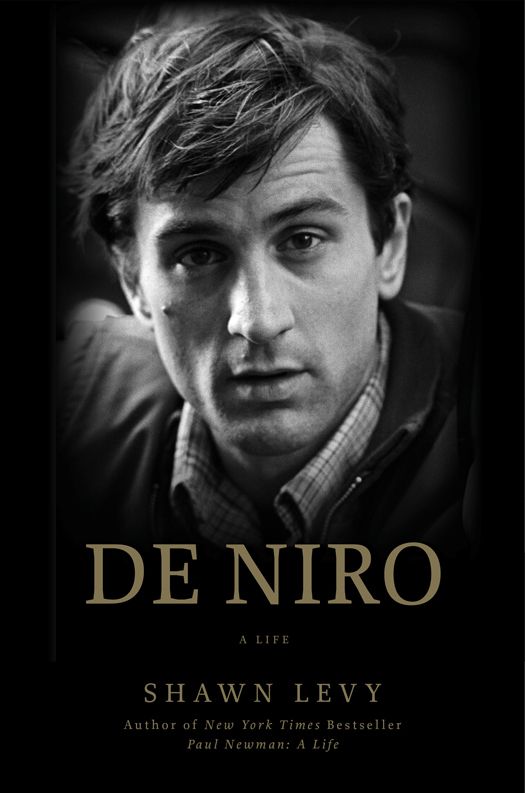
De Niro
A Life
کتاب های مرتبط
- اطلاعات
- نقد و بررسی
- دیدگاه کاربران
نقد و بررسی

November 10, 2014
The famously laconic, chameleon actor, gets a respectful treatment by journalist and film critic Levy (Paul Newman: A Life). As the only son of New York bohemian artists who separated and left "Bobby" largely to his own devices, De Niro recognized at age 18 that if actors who weren't very good could make a living then "I can't do any worse than them." As a student of Stella Adler's Conservatory of Acting, the young De Niro grew serious about the métier, learning "the value of application, self-scrutiny, doggedness," a system of self-discipline that would stick with him throughout his long career. De Niro cultivated important relationships early on, yet his most defining roles were under the direction of Martin Scorsese, his Italian New Yorker "alter ego." Their collaboration on such iconic films as Taxi Driver and Raging Bull allowed De Niro to explore and hone his considerable skill and range. Known for his "monomaniacal immersion" in his characters, such as the young Sicilian-speaking Vito Corleone in The Godfather Part II (for which he won his first Oscar), De Niro nonetheless created fewer memorable roles in recent years. While Levy calls his later career a "muddle," De Niro significantly helped revitalize the New York film world by establishing a studio in Tribeca and producing his own work. With no help from the publicity-wary actor himself, Levy does a decent, evenhanded job of delineating the career of this national treasure.

Starred review from October 15, 2014
The life and work of the legendary actor. Film critic and best-selling biographer Levy (Paul Newman: A Life, 2009, etc.) turns his attentive eye to another silver screen icon: Robert De Niro (b. 1943). Though De Niro has been a persistent pop-culture presence since his film career started over 40 years ago, he is famously reticent with the press. Paradoxically, De Niro, a man notorious for his intense and immersive performances, would often embarrassingly fumble through press interviews, hardly displaying the confidence and poise that he exudes on screen. Despite scant sources of candidness by De Niro, Levy expertly culls details for a vivid, complex portrait of the enigmatic actor, from his bohemian parents and upbringing amid the art scene of midcentury Manhattan to his rise alongside the auteur generation of new American filmmakers to his status as a revered idol. De Niro's withholding of his personal life has created a mystique around him, an aura that Levy plays up by tracing De Niro's lineage to an 11th-century Roman cavalryman, an audacious attempt to present his subject in a noble and rarefied air. It is, perhaps, the only misstep by Levy, but like any successful biographer, he captures not only the life of his subject, but the spirit of the times in which De Niro lived, simultaneously charting the success of collaborators and peers like Martin Scorsese. Levy is not simply star-struck; he objectively portrays the criticism of De Niro's later career for choosing easy blockbuster fare. Perhaps the best symbols of De Niro's dedication to his craft are the numerous anecdotes about his massive collection of stage props and set pieces. For De Niro, the success of a role was in his attention to detail, and he never relied on histrionics but rather a minimalist philosophy of revealing only a character's essential emotions-much like he approached his own life. An impressive biography that will surely stand as the definitive De Niro volume.
COPYRIGHT(2014) Kirkus Reviews, ALL RIGHTS RESERVED.

October 15, 2014
This unauthorized, cinematically thorough, but otherwise superficially researched biography of one of America's greatest actors and most private celebrities purports to reveal his personal life but, while filled with often interesting detail, contains few surprises. Levy is at his best when concentrating on De Niro's moviemaking, offering insights that, if not always original, can be fascinating. The actor's preparation for his roles is legendary, and Levy adds a layer by showing how different De Niro's background was from the lives of his characters. He literally learned baseball (he was from a bohemian and urban family) for Bang the Drum Slowly, and he studied street lingo (his upbringing was more middle class) for Mean Streets, Sicilian (his family was English-speaking) for The Godfather, Part II, the saxophone for New York, New York, and boxing for Raging Bull. Levy, a fine writer, is very good as a movie and acting critic, less so as a biographer. The real Robert De Niro remains as elusive as ever here, but as an analysis of his work on screen, especially his early films, the book deserves attention.(Reprinted with permission of Booklist, copyright 2014, American Library Association.)

























دیدگاه کاربران